I am an Environmentalist
I am an environmentalist and a protester; I am a dissenter and a demander who will not be discouraged.
A small part of me stands in solidarity with the other protesters who have rightly been named Time’s Person of the Year.
I am a convenient target for reactionary politicians and know-it-all newspaper columnists who specialize in promoting business as usual.
I won’t be receiving a Christmas card from Prime Minister Stephen Harper – who thinks I’m un-Canadian and an “extremist” – or Joe Oliver, Canada’s Minister of Natural Resources, who thinks I’m an “unlawful” person. I’m not sure what my Alberta in-laws think of me.
Because I disapprove of the Keystone XL and Enbridge Northern Gateway pipelines, I am accused of being an anti-job-creation rebel who is trying to destroy the capitalist system.
Since I object to the mining of tar sands to extract oil, I am labelled a fossilized malcontent who has an obsolete understanding of how a modern resource economy works.
Opposed to Shale Gas ‘Fracking’
I won’t be on BC Premier Christy Clark’s holiday gift list either because I think the development of the Site C dam would be a financial and environmental tragedy for the province. The Premier also doesn’t agree with my opposition to shale gas hydraulic fracturing – a process that will drastically reduce fresh water supplies in north-eastern BC and substantially increase greenhouse gases.
(Clark already despises me due to the fact I oppose the Jumbo Glacier Resort and development in the Sacred Headwaters.)
Why is it wrong to be concerned with the maintenance of ecological balance and the conservation of the environment? Why are people who want to reduce – and possibly eliminate pollution – and create a safer world, considered obstructionist naysayers?
Thankfully, I am not alone in my opinions.
I am an environmentalist, but I am also a biologist. Sandra Steingraber is a poet, cancer survivor, activist, Ph.D. biologist, and mother. In her most recent book Raising Elijah: Protecting Children in an Age of Environmental Crisis, she writes, “Ultimately, the environmental crisis is a parenting crisis. It undermines my ability to carry out two fundamental duties: to protect my children from harm and to plan for their future.
My responsibility as a mother thus extends beyond push mowers and clotheslines to the transformation of the nation’s energy systems along renewable lines.” Dr. Steingraber was recently honoured with the 17th Heinz Award in the Environment. She dedicated the accompanying $100,000 grant to the fight against hydraulic fracturing which she views as “the biggest threat to this generation I can think of.”
I am an environmentalist, but I am also an educator. Greg Craven is a high school science teacher in Corvallis, Oregon. He is the author of What’s the Worst that Could Happen? A Rational Response to the Climate Change Debate. On his website, he writes, “We are all in this together. There are no emergency exits to either the global economy or the global climate. So let’s enlist as many people as we can, to make the most solid decision we can. I hope you’ll agree that we owe ourselves – and our kids – nothing less.”
I am an environmentalist, but I am also a banker. Simon Martin is the HSBC bank’s Head of Group Corporate Sustainability. “Solutions to eliminate climate change require collective action involving governments, NGOs, the public and the business community,” Martin said in 2010. “Businesses are becoming increasingly aware of the financial benefits of operating sustainably and tapping into the low carbon economy.”
I am an environmentalist, but I am also a scientist. Donella Meadows received her Ph.D. in biophysics from Harvard and taught at Dartmouth College in New Hampshire. For 16 years she wrote a weekly column called The Global Citizen, commenting on world events from a systems point of view. “The scarcest resource is not oil, metals, clean air, capital, labour, or technology. It is our willingness to listen to each other and learn from each other and to seek the truth rather than seek to be right.”
I am an environmentalist, but I am also a consultant and experimental physicist. Amory Lovins is the chairman and chief scientist of the Rocky Mountain Institute. In his latest book, Reinventing Fire: Bold Business Solutions for the New Energy Era, Lovins writes, “The fossil-fuel party is drawing to a close. It’s time for something completely different.”
I am an environmentalist, but I am also a mayor. Ken Livingstone was the Mayor of London from 2000 to 2008 and will be the Labour Party candidate in the 2012 London mayoral election. In 2007, he said: “To tackle climate change you don’t have to reduce your quality of life, but you do have to change the way you live.”
I am an environmentalist, but I am also an entrepreneur. Paul Hawken has started and operated a number of ecological businesses. As an author, he has written: “This planet came with a set of instructions, but we seem to have misplaced them. Important rules like don’t poison the water, soil, or air, don’t let the Earth get overcrowded, and don’t touch the thermostat, have been broken.”
I am an environmentalist, but I am also an economist. Sir Nicholas Stern is a former World Bank chief economist and the author of a landmark report on the costs of climate change. He has said “The two great challenges we face are overcoming poverty and managing climate change. If we fail on one, we will fail on the other.” Regarding greenhouse gas emissions, Stern said: “Ultimately stabilization – at whatever level – requires that annual emissions be brought down to more than 80 percent below current levels.”
I am an environmentalist, but I’m also a doctor. The late Paul Epstein was a pioneer in the area of climate change and infectious disease. He first saw outbreaks of disease that had not been recorded before while a volunteer physician in East Africa. In an interview with The New York Times in 1998 about that year’s outbreak of cholera and malaria in South America in the wake of El Niño flooding, and simultaneous outbreaks of cholera, malaria and Rift Valley fever in Africa after heavy rains and flooding, Dr. Epstein made the case for linkage. “If extreme weather events are part of a changing climate,” he said, “we’ve seen lots of evidence of the profound health effects associated with climate change this year.” With Dan Ferber, Dr. Epstein recently completed the book Changing Planet Changing Health: How the Climate Crisis Threatens Our Health and What We Can Do about It. Dr. Epstein said: “There are strong indicators that a disturbing change in disease patterns has begun and that global warming is contributing to them.”
I am an environmentalist, but I am also a businessman. The late Ray Anderson who guided Interface (the world’s largest manufacturer of modular carpet) on the journey to sustainability once said: “I used to think that my job didn’t have anything to do with the environment. Then I realized that my job, as well as everyone else’s job, impacts the environment in some way. And now advocating for sustainability has become my No. 1 responsibility.”
I am an environmentalist, but I am also a venture capitalist. Tom Rand founded VCi Green Funds – a private venture/angel fund – in 2005. He is also the author of Kick the Fossil Fuel Habit: 10 Clean Technologies to Save the World. He says “Building a low carbon economy creates the biggest market in human history, involving trillions of dollars. The question facing Canada is how do we ensure we’re a seller, not a buyer, into that market.”
I am an environmentalist, but I am also a 1984 Nobel Peace Prize winner. Anglican Archbishop Desmond Tutu has scolded Canada for its lack of a climate change policy. In a letter to Stephen Harper, Tutu wrote: “Canada, you were once considered a leader on global issues like human rights and environmental protection. Today, you’re home to polluting tar sands oil, speeding the dangerous effects of climate change.”
I am an environmentalist, but I am also a columnist. George Monbiot is a regular contributor to The Guardian and the author of Heat: How to Stop the Planet from Burning. In 2007, he wrote: “When you warn people about the dangers of climate change, they call you a saint. When you explain what needs to be done to stop it, they call you a communist.”
I am an environmentalist, but I am also a leader of an energy research organization. Maria van der Hoeven is the executive director of the International Energy Agency and served as Minister of Economic Affairs of the Netherlands from February 2007 until October 2010. In that latter role, energy policy was one of her most important responsibilities. Without an urgent and radical change of policy direction, van der Hoeven says “the world will lock itself into an insecure, inefficient and high-carbon energy system. Renewables already play a central role in fostering sustainability and energy security, and their significance will only grow in the coming decades.”
I am an environmentalist, but I am also an actor. Mark Ruffalo was one of 12,000 people who surrounded the White House on November 6, 2011 to protest the Keystone XL pipeline. “I’ve seen the kind of damage that out-of-control energy development can do to water and to communities near my own home, where fracking for natural gas is causing widespread pollution … All these problems are connected – we need to get off fossil fuel,” Ruffalo told reporters.
I am an environmentalist, but I am also an actress. Julia Louis-Dreyfus is known for her role as Elaine on the popular sit-com Seinfeld. She calls the Keystone XL pipeline a “brutally stupid money grab” and such a “terrible idea that every clear-headed environmental organization you can think of is against it.”
I am an environmentalist, but I am also a First Nations chief. “I am going to stand in front of bulldozers to stop this project, and I expect my neighbours to join me,” Jackie Thomas, chief of the Saik’uz First Nation, part of the Yinka Dene Alliance, said regarding the Enbridge Northern Gateway pipeline.
I am an environmentalist, but I am also a man of letters and a farmer. Wendell Berry has long been an economic critic. Berry says: “The most alarming sign of the state of our society now is that our leaders have the courage to sacrifice the lives of young people in war but have not the courage to tell us that we must be less greedy and less wasteful.”
I am an environmentalist, but I am also a rabbi. Michael Lerner is the rabbi of Beyt Tikkun Synagogue of San Francisco. He says global climate change is “a product of irresponsible forms of industrialization and use of scientific and technological knowledge divorced from ethical concerns” and it “has caused a deepening of the starvation and malnutrition that afflicts our planet.”
I am an environmentalist, but I am also the leader of the Catholic Church. Pope Benedict XVI has said: “The goods of creation belong to humanity as a whole. Yet the current pace of environmental exploitation is seriously endangering the supply of certain natural resources not only for present generations, but above all for generations to come.”
I am an environmentalist, but I am also the spiritual leader of Tibet. The Dalai Lama says, “As people alive today, we must consider future generations: a clean environment is a human right like any other. It is therefore part of our responsibility towards others to ensure that the world we pass on is as healthy, if not healthier, than we found it.”
I am proud to be an environmentalist and I stand united with all people who put the health of future generations and planet Earth before fossil fuel profit. Those of us who oppose to fossil fuel industry will never give up. We support renewable energy alternatives – solar, wind, geothermal, and tidal – that will result in a more sustainable, equitable and socially just world.
I wish Stephen Harper, Joe Oliver, and Christy Clark a Merry Christmas, but I have one question for each of them: Is it impossible for you to consider the possibility that you might be wrong?
Lastly, I predict the New Year will be anything but peaceful if the Harper and Clark governments continue to promote and support the short term desires of Big Oil and Gas. Another prediction: Continued discounting of environmentalists’ voices by ministers and the media will only cause our numbers to multiply.
We protesters will not give up; we can change the world.
Michael Jessen is a Nelson eco-writer and owns the consultancy Zero Waste Solutions. He is also the Energy Critic for the Green Party of British Columbia and can be reached by e-mail at zerowaste@shaw.ca.
RESOURCES:
- http://www.time.com/time/specials/packages/article/0,28804,2101745_2102132,00.html Time Person of the Year
- http://steingraber.com/ Sandra Steingraber
- http://www.gregcraven.org/ Greg Craven
- http://www.sustainer.org/dhm_archive/ Donella Meadows
- http://rmi.org/ReinventFireChangeEnergyUseForever Amory Lovins
- http://www.paulhawken.com/paulhawken_frameset.html Paul Hawken
- http://www.monbiot.com/ George Monbiot
- http://chge.med.harvard.edu/about/faculty/epstein.html Paul Epstein
- http://www.ted.com/talk /ray_anderson_on_the_business_logic_of_sustainability.html Ray Anderson
- http://www.tomrand.net/ Tom Rand
- http://www.hsbc.com/1/2/newsroom/news/2011/climate-partnership Simon Martin
- http://www.environmental-finance.com/news/view/2135 Maria van der Hoeven
- http://current.com/shows/countdown/videos/mark-ruffalo-on-the-delay-of-the-keystone-xl-pipeline-and-whats-next-against-tar-sands-development-and-hydrofracking Mark Ruffalohttp://www.tarsandsaction.org/video-release-julia-louis-dreyfus-challenges-pres-obama-stop-keystone-xl/ Julia Louis-Dreyfus
- http://systemchange.ca/?p=340 Chief Jackie Thomas
- http://www.theglobeandmail.com/news/politics/nobel-laureates-press-harper-to-oppose-alberta-oil-sands-expansion/article2183726/ Desmond Tutu
- http://www.umc-gbcs.org/site/apps/nlnet/content3.aspx?c=frLJK2PKLqF&b=2952647&ct=7227849¬oc=1&printmode=1 Rabbi Michael Lerner
- http://www.catholicsandclimatechange.org/pdf/summer_907.pdf Pope Benedict XVI
- http://www.dalailama.com/ His Holiness The Dalai Lama

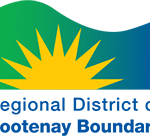
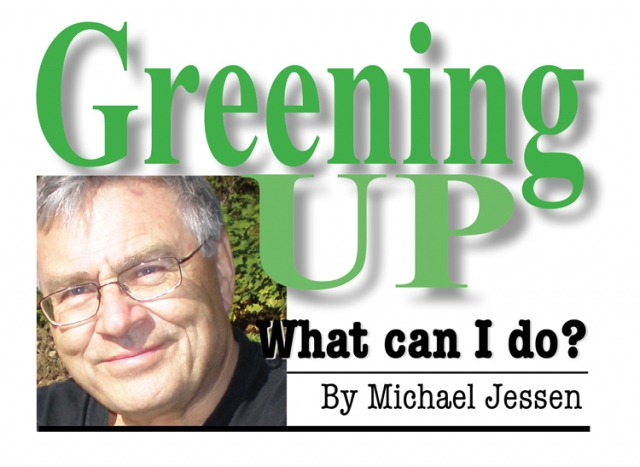

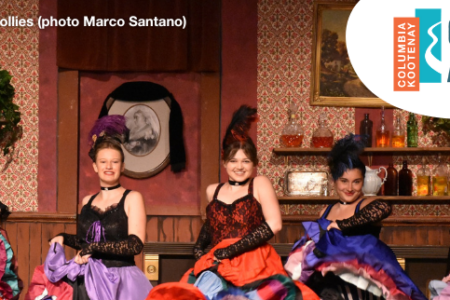
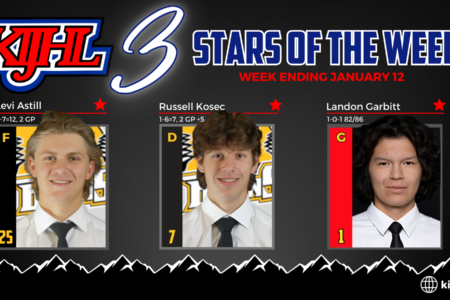
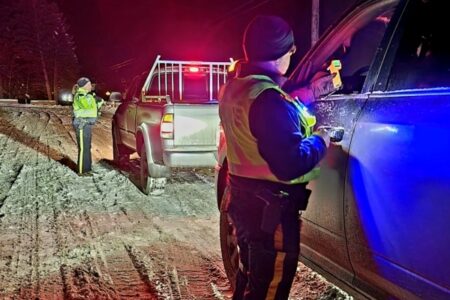

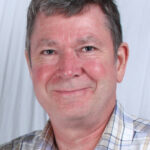













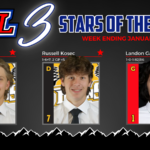


Comments